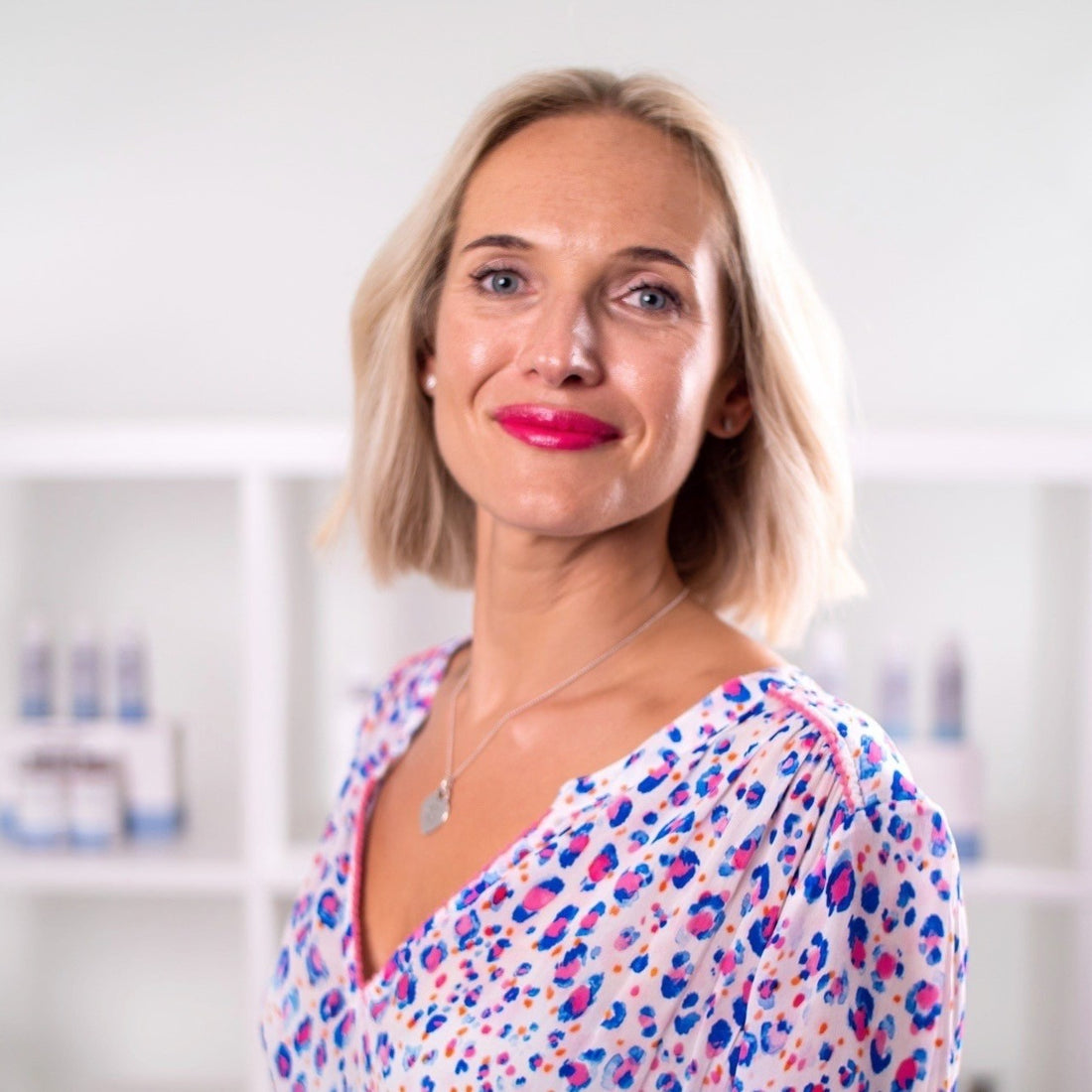How much collagen do I need for skin benefits?

Gemma Clare, proto-col's in-house expert, shares her knowledge on the skin benefits of collagen and how you can achieve radiant skin through the use of beauty supplements.
Every new year, I get an influx of clients who have committed their resolution to focus on skin health. In the clinic, my holistic and multidisciplinary approach combines holistic aesthetic treatments, personalised home skincare prescriptions and nutricosmetics to help clients achieve healthier skin and reach their aesthetic aspirations.
In recent years, the beauty and wellness market has become saturated with collagen supplement brands. I know it can be a minefield to discern which collagen supplements really do work, plus finding the right collagen supplement for your individual needs. Here, I am going to discuss a few of the key areas to help you get the results you want (and not waste your money on products that aren’t clinically effective!).
What is Collagen?
Collagen is a protein in the body and its synthesis and degradation continues through life. There are about 28 different forms of collagen protein with the main collagen proteins involved in skin being Type I and Type III. Type I collagen is the most abundant in skin, (also present in tendons, vasculatures, organs, and bones) at 80-90%, and Type III that represents about 15% of skin collagen providing the skin’s dermis with strength, firmness, and elasticity.
Collagen protein production begins in utero and can be seen in the developing foetus around the 5th week of pregnancy and the collagen matrix continues to develop and increase. Through childhood and puberty sex hormones cause rapid and extensive collagen protein turnover (mainly type I to assist in bone development).
Intrinsic factors (e.g. genetic and hormonal) and extrinsic factors (e.g. lifestyle, blue light, pollution and sunlight) can cause additional collagen degradation by increasing free radical chemicals, which inhibit the breakdown of free radical damage. The cumulative damage to collagen protein causes visible signs of ageing, however, numerous scientific studies demonstrate ingesting collagen peptides delay skin ageing and to improve skin conditions as the collagen peptides travel to fibroblast sites in the body and stimulate them to increase collagen, elastin, and hyaluronic acid production, which results in skin (and other tissue) rejuvenation as well as improving hair and nail health.
Collagen for Different Life Stages
From mid-twenties, the ability to replenish collagen proteins naturally declines at a rate of about 1.0%-1.5% a year as fibroblasts become less active. As collagen protein levels decline, the collagen structure becomes fragile and brittle, which weakens the skin’s structural support and causes loss of skin volume and firmness, skin thinning and increases fine lines and deeper wrinkles. Alongside collagen protein loss, hyaluronic acid levels decline, which decreases skin hydration and suppleness, so this is the ideal to start taking a collagen supplement and I recommend Beauty Collagen as clinical studies show that 10,000mg of Bioactive Collagen Peptides® is highly beneficial.
During pregnancy bovine collagen supplements have been shown to be beneficial for joints, ligaments, and muscles, which support carrying the baby by helping alleviate muscle soreness and injuries. Postpartum, particularly breastfeeding, bovine collagen supplements can improve skin health by increasing hydration levels. I recommend proto-col's Beauty Collagen as clinical studies show that 2,500mg of Bioactive Collagen Peptides® plus the additional hyaluronic acid is beneficial. N.b. always check with your health care provider before commencing supplements during this time.
During peri-menopause collagen protein levels decline further meaning by menopause collagen protein levels visibly decrease skin thickness, skin elasticity and skin hydration. During the first 15-18 years of post-menopause collagen level declines more rapidly at 2.1% year, and skin thickness at 1.13% year so I recommend Complete Collagen. Bedridden, older patients can also benefit from collagen supplements as hydrolysed collagen improves wound healing and reduces skin vulnerability and during active ageing years adding collagen protein type II for tendons and ligaments is ideal to maintain strength and flexibility. I recommend Complete Collagen containing clinical proven doses of 2 forms of collagen for whole body health and with micronutrients to maintain normal energy levels.
Proto-col utilises VERISOL® hydrolysed collagen, also known as Bioactive Collagen Peptides®, which has been extracted and broken down into smaller pieces for increased bioavailability and Proto-col’s collagen supplements boast a 98.4% digestibility rate, which is an important detail as the quality of a collagen supplement really depends on the formulation; collagen peptide composition, concentration, and bioavailability to achieve clinically significant results. Scientific studies confirm that consuming a collagen drink containing a minimum of 2,500mg of VERISOL® Bioactive Collagen Peptides® can reverse the age-related collagen synthesis reduction by increasing collagen synthesis, thus improving skin hydration and elasticity and reducing skin wrinkles. After 8 weeks of taking VERISOL® participants had a massive 60% increase in type I collagen protein, wrinkle volume decrease on average 20.1% and increase in skin elasticity on average 18%.
I use Proto-col Beauty Collagen alongside treatments such a SkinPen Precision Micro needling as studies confirm that ingesting hydrolysed collagen improves the skin healing process, which compliments the skin remodelling process.
Vegetarian and Vegan Collagen Support
Ingredients which have a synergism with collagen are an excellent option for vegetarians or vegans and antioxidants are the best example for this as they neutralise free radicals damage generated in the skin aging process, improve the signs of ageing, and stimulate collagen protein synthesis. Proto-col’s Skin Radiance is an antioxidant-rich vegan formula containing SkinAx²™, an innovative anti-aging nutricosmetic formula blending validated in over 40 scientific publications contains French grape seed, melon extract, vitamin C and zinc, which combined deliver highly bioavailable polyphenols and bioactive SuperOxide Dismutase (SOD) to prevent skin oxidation and stabilise the skin’s collagen protein fibres.

